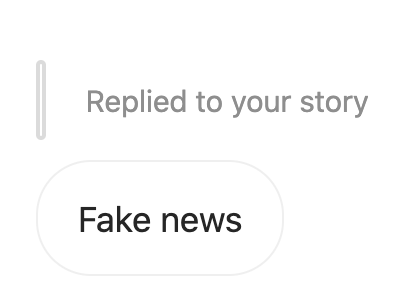
Ozan*, a 19 year-old university student in Istanbul, has a popular Instagram account boasting nearly 100,000 followers. He sends me a direct message on Intagram every week or two. Usually, he replies to news I’ve reported with disbelief.
“Why do you follow my account?” I asked him.
“I think you’re biased, and I think you support terrorism, and that saddens me,” Ozan said. “But sometimes, you tell us the events that we cannot see in the news in an uncensored or impartial way, so I like and follow you,” he said. “For example, the aggressive actions of Azerbaijani soldiers towards civilian settlements in Karabakh. I saw these from you for the first time.”
Following a November 2020 ceasefire agreement in Karabakh, which ended the fighting between Armenian and Azerbaijani forces, Azerbaijani soldiers have routinely posted videos of themselves torturing Armenian captives and looting and destroying abandoned Armenian properties.
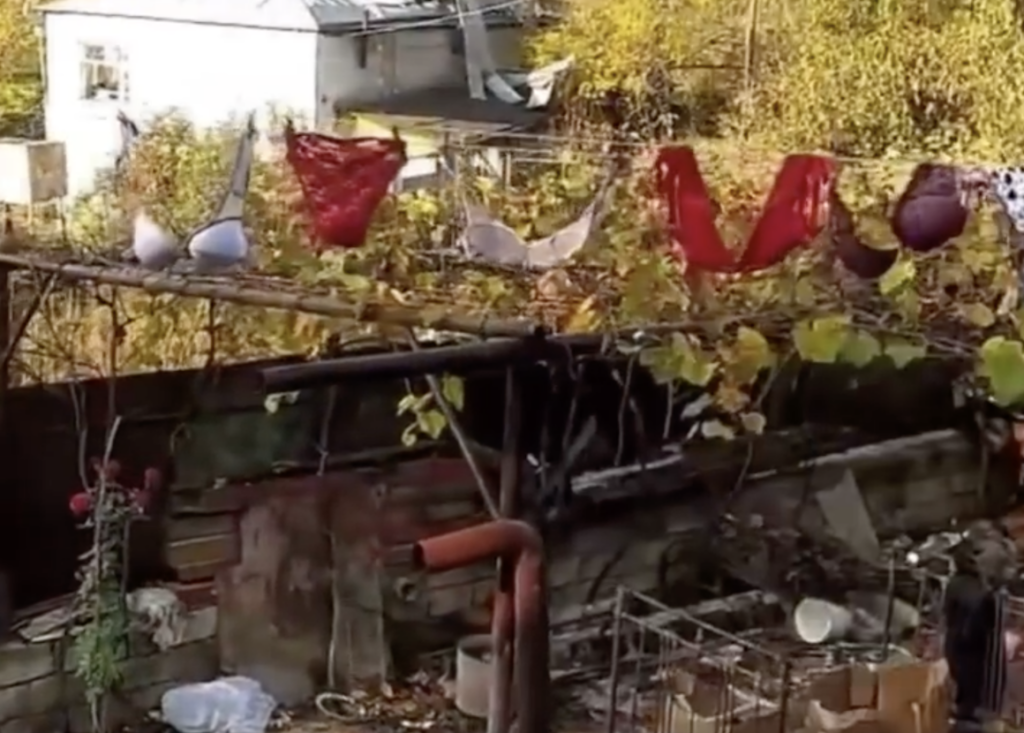
In another video posted from Karabakh in late December, 2020, an Azerbaijani soldier is seen in a home, flipping through a photo album left behind by an Armenian family. He pauses at every photo containing a woman he considers attractive and gives the camera a thumbs-up. When the soldier posted the video to his Instagram account, he captioned it, “Armenian whores.”
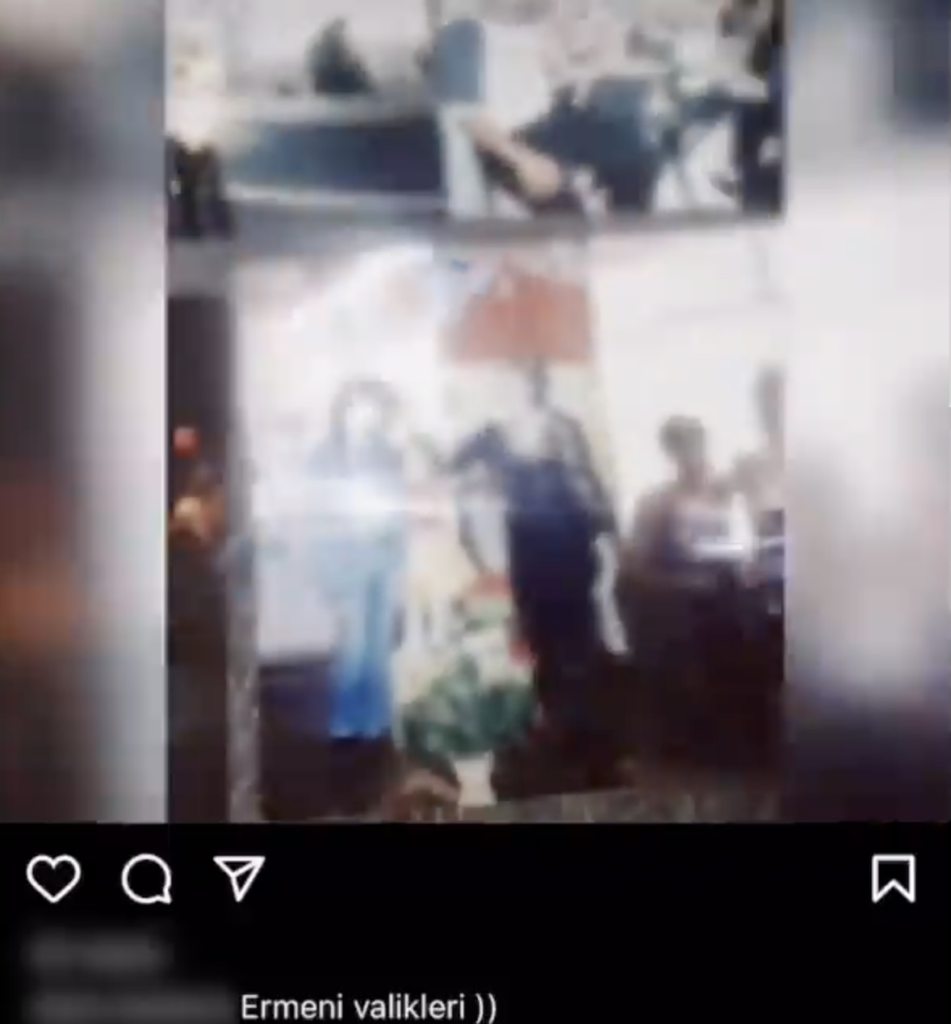
“I didn’t want to believe these videos when I saw them,” Ozan said. “But then, I started researching myself. I looked on Telegram. I saw many other videos much worse than the ones you’ve posted. They are proud of their barbarism. I saw soldiers cut the throat of an old man in one of them.”
“This made me question the news in Turkey more,” Ozan said. “Now I try to follow more sources.” Ozan, who graduated from high school last year, says that while he questions what he sees on the news in Turkey, he doesn’t question anything he learned in school.
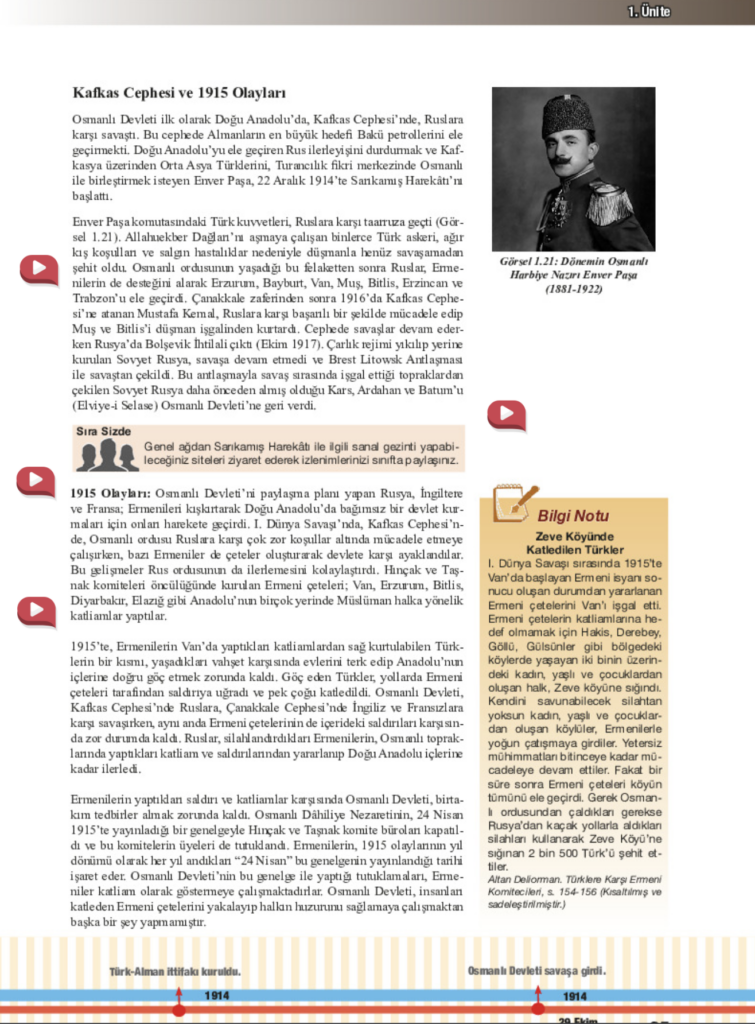
The curriculum and text books used in public schools in Turkey are vetted by the Turkish government, ensuring that the material taught to students in Turkey echoes the agenda of the ruling AKP political party. The Turkish government categorically denies the Armenian genocide. About the events of 1915, Turkey’s government-approved 12th grade history book says, roughly:
“In 1915, Russia, the UK, and France wanted to divide the Ottoman Empire between themselves, so they incited the Armenians to rebel against the Turks. While Turkey was fighting against Russia on the Caucasus front, Armenian gangs raided Turkish villages and forced Turkish people to migrate to inner Anatolia.
Armenian gangs committed massacres in many parts of Anatolia, like Bitlis, Van, Erzurum, and Diyarbakir. Turks who survived these massacres tried to flee to Anatolia, but most of them were attacked on the roads by Armenian gangs. Ottoman armies who were fighting Russia in the Caucasus and the British and the French in the Gallipoli now had to fight against Armenian gangs.
Russia took advantage of this situation and advanced through Eastern Anatolia. The Ottoman government had to respond to this, and arrested the members of the Hinchak and Tashnak organizations. Every year, on the 24th of April, Armenians memorialize those arrests and try to portray them as massacres.”
“This wasn’t the exact book we used in my history class, but the words are almost exactly the same,” said Ozan, after reviewing the textbook pages. “I believe this. Even Armenians living in Istanbul say that it wasn’t a genocide,” he said. He thought for a moment, then continued. “But I don’t know if they’re saying that because they’re afraid of negative reactions.”
“Are you aware of the near-global consensus that the Armenian genocide did happen?” I asked.
“Look,” Ozan said. “The Armenians living here in Turkey were not sent down from heaven by God. If there was a genocide, how do they exist? I’d have to see strong evidence to believe otherwise.”
Volkan*, a 22 year-old university student from Mersin, sent a message several months ago to tell me that though he appreciates and reads my work, he’s afraid to actually follow any of my social media accounts from his. “I’m afraid that if somebody doesn’t like my opinions, and they see I am following you or liking your posts, they will accuse me of being a PKK or FETÖ supporter,” he said. “There are so many ridiculous ways to get arrested in Turkey these days.”
(The PKK is the militant arm of the Kurdish Workers’ Party, and is a designated terror organization in Turkey and a number of other countries. FETÖ refers to followers of Islamic cleric Fethullah Gülen, a former ally-turned-rival of Turkish president Erdogan. FETÖ is a designated terror organization in Turkey. The Turkish government has accused me of being both things.)
Volkan says that while he was attending a public high school in Mersin, he began to question the Turkish government’s narrative of the Armenian genocide. “I was a history nerd, so I was aware of it,” he said. “And I used to listen to System of a Down a lot, and they’re Armenian and talk about the genocide.
“But I didn’t want to believe it was real. I thought it was something like a misunderstanding, or a conspiracy against the Turks. I thought Armenians were overreacting to what was an exile, and that this exile was justified because Armenian gangs were sabotaging the Turkish army in the Caucasus. This is what we were told. But by the time I was in my last year of high school, I knew the Armenian genocide was real and the Turkish government was lying about it.”
Volkan says he didn’t know any Armenians in his classes, but has Armenian friends in other parts of the country. “One of my friends was bullied by a group of Grey Wolves [Turkish nationalists] at her school in Istanbul,” he said. “They overheard her having a conversation with someone in which she mentioned being Armenian. After class, the Grey Wolves pushed her and swore at her.”
Seda*, an Armenian woman living in Turkey, went to private school in Istanbul. “One history teacher said, ‘How can Armenians even exist in Istanbul if there was a genocide?’ And I took a stand, and I told her 1.5 million were murdered,” she said. “Another of my teachers said it was an exile, and a huge human tragedy, but he refused to use the word ‘genocide.’ I can’t imagine how bad it would have been in a public high school in Turkey.”
Seda says she has experienced racism for being Armenian many times in Turkey. “I live in a vacation area during the summer, and there are a lot of Armenians in this area. There’s a bakery owned by a Turkish man there, and once, he mistook an Assyrian customer for being Turkish, and told the Assyrian man, ‘Look at all these nice houses. They’re all owned by Armenians. We should really have killed them all.’”
Seda never hides her Armenian ethnicity, but knows many Armenians living in Turkey do. “For example, there are many Armenian girls named Lori. Lor, is the name of a bird. Lori is also the name of a region in Armenia. When they’re asked about their name, they will just mention the bird thing, and avoid mentioning it’s the name of an area in Armenia. I think they’re afraid.”
Seda says living in Turkey during the Karabakh war was especially hard. “It was a horrible, and it’s still horrible,” she said. “And when they opened that ‘Trophy Park,’ earlier this month, it felt like we were in a horror movie.”
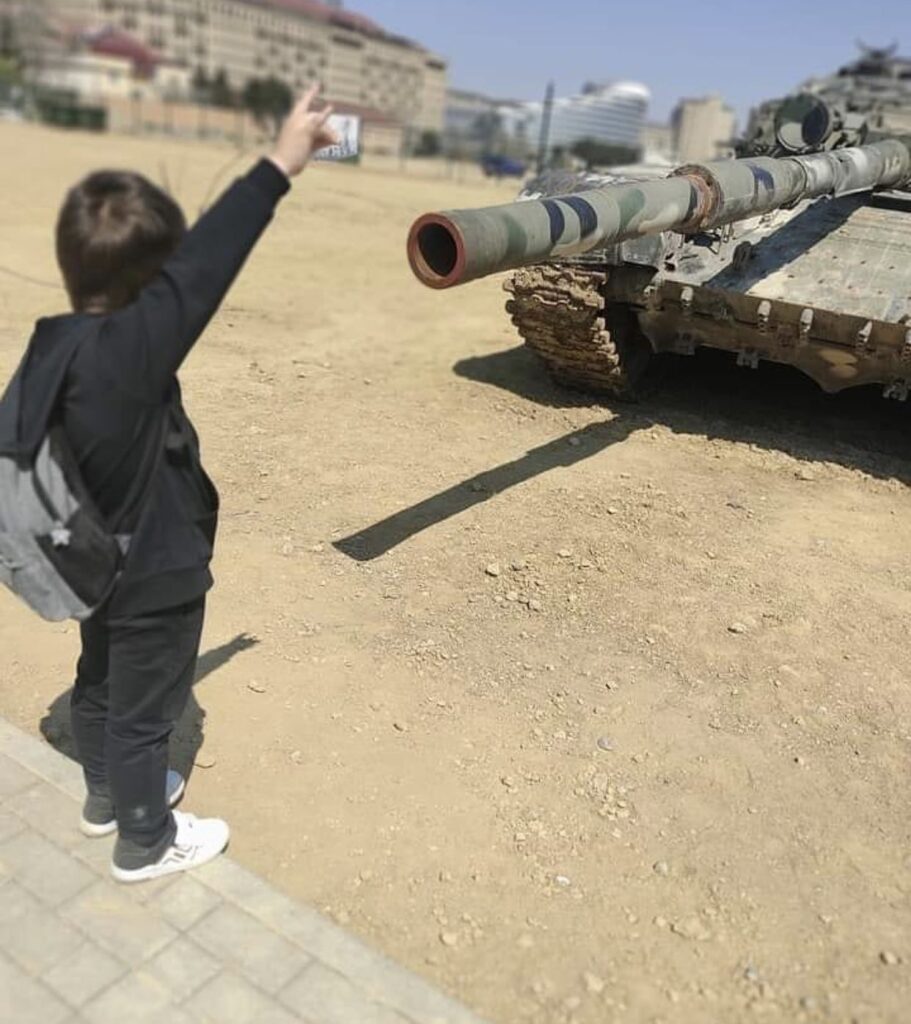
“Military Trophy Park” is an Azerbaijani government-run exhibition of military vehicles and equipment seized from Armenians during the last Karabakh war. There are recreations of trenches and military offices featuring caricature-like statues of Armenian soldiers in humiliating positions. The park has been wildly popular, with long lines forming for entry.
One mother posted several videos of her two young boys enjoying the park. They visited the trenches, marvelling at the use of real barbed wire, before they jumped on a replica of a landmine. In her caption, the mother mentioned that one of her boys was missing for a brief period, and just as she’d started to worry, “…I suddenly saw Amir running towards us in delight, he’d seen a machine gun and [pretended to] shoot all the figures of the Armenians in the trench.”
“That park just instills hatred in the people, especially in the children,” said Samet*, a 27 year-old government employee in Baku. “It’s wrong. And the hate we are taught is not limited to Armenians. I grew up learning in school that Turkey rightfully owns all of Cyprus, and that Greece is bad. Greeks and Armenians are portrayed as equally bad. And they tie religion into these feelings. They tell us they’re infidels because they aren’t Muslims.
“I grew up believing these things with all my heart,” Samet continued. “And it wasn’t until I was around 18 years old and started doing my own research that I realized so much of what I learned was wrong.”
Samet says his opinions make him an outlier in Azerbaijani society. “Less than 5% of people here think the way I do,” he said. “I can only share how I really feel with my close friends and the people I trust. I’d be declared a traitor and probably arrested if I shared my opinions with everyone. That is, if people didn’t kill me first. And yes, what happened to the Armenians was a genocide. I know that.”
On April 24, US president Joe Biden formally acknowledged that the Armenian genocide took place, enraging the Turkish and Azerbaijani governments. “I see so many bad posts by people here in Azerbaijan,” said Samet. “They’re saying things like, ‘Yes, we did it, and it was good.’
Ozan says he’s seen a variety of responses to the US’ declaration. “It doesn’t matter to me. I still don’t believe the lie of the ‘Armenian genocide,’” he said. “But most people are angry. Some just deny that anything happened. Some call for an investigation. And some say ‘Yes, it happened. And the Armenians deserved it.’”
*an alias


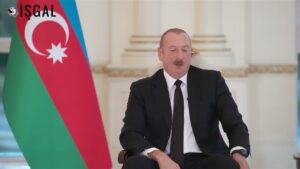
15 comments
Great article!! Thank you for reporting.
Good Job Lindsey
I appreciate that this article displays so many points of view from within AZ and Turkeys population, some more reasonable than I expected. I like that the writer is able to show us why some people on both sides of this issue are unable/scared to express their beliefs. Looking forward to more content like this.
Very interesting read, especially the different perspectives and experiences. Living in America it is not easy to understand the magnitude of information control in Turkey & Azerbaijan. And seeing how the govts paint the narratives (blatant lies) to incite the hatred that we have seen turn into savage & barbaric actions in the turk/azeri adults is horrifying.
Hey Lindsey! Turkish guy here. I appreciate your work and hope you continue to bring up the problems and controversial issues of this region. We should understand what we disagree on to communicate with each other and you are doing a great job.
Different perspectives you laid here do reflect the inherent difficulties with regards to denialism of the Armenian Genocide.
I have one reservation though. Is there a possibility of a translation error in Samet’s quote? Are you sure that he learnt those in “school” or in family. Because, to my knowledge, schools in Azerbaijan are not *that* bad. Though I studied in Turkey so…
Anyway, keep up the good work mate!
I also commented on Lindsay’s Twitter topics several times and follow her on twitter. I am Azerbaijani and I want to believe in divine justice, but, unfortunately, we are far from this, although we are all human. Lindsay never responded to my comments, so I thought she was biased. Perhaps in the past she had some kind of personal negative experience with azerbaijanies, and therefore she is being more emotional than truthful. But if you are an internationally renowned reporter, journalist or blogger, you have to be impartial, this is the basis of justice. Otherwise, it is quite obvious from the outside that you are taking sides. I am not saying that Azerbaijanis are innocent, no, not at all, of course, there were cruel and wrong actions on our part, I feel sorrow for that. But Lindsay or other so-called liberal journalists have never demonstrated the inhuman atrocities committed by the Armenians. We may not be as strong as the Armenian lobby, but the truth remains: I posted on Linsday’s Twitter several times videos of brutal inhuman actions against Azerbaijani soldiers during the recent war. All this was recorded by amateur telephone cameras from the Armenian side, they are blood freezing scenes. Likewise, the bombing of the cities of Azerbaijan, as a result of which the civillians were killed. Are we so different kinds that you can remain indifferent to us? Or do we have different bloods? Why did I not see any regret or confession of the crime from the Armenian side? Why Lindsay has decided to turn her blind eye to these facts. Why she is not equally covering the both side of teh stories? I’m available to talk to her anytime she wishes. I will leave my email, can be contacted at any time, so that can share my contact phone as well. I’m open for the dialogue. Best regards, Kanan
Dear Kanan, the problem is that yes Armenians have done and are capable of all sorts of horrific actions, but the world feels for them because they know who is at the position of power.
Think of it this way. A parent beats the child and then child takes a stick and hits the parent, who do you sympathize with? Unless you are an idiot, you would take the side of the child, and I suppose you are not an idiot.
Since the Turks came to power in the 10th century or so, Armenians have been the weaker side, not the more powerful side. In Azerbaijan, the parent country is Azerbaijan, Armenians were your citizens, so why did you organize Baku Pogroms, Sumgait Pogroms, Kirovabad, OMON and etc and etc, and then why do you blame it all on Armenians (Azeris claim that Sumgait pogroms were organized by Armenians to beat their own). The very same is true with Ottomans, Armenians were their citizens, is it really the case that they couldn’t find some sort of common ground with them? Did they really need to wipe them out instead of offering them better living conditions?
I like that Ottomans blamed it all on Russians, yeah Armenians chose Russians, sure you choose one evil empire over another for no reason, why would you do it if the empire you live in provides you with all you need? Do you know that at this time there were much more prominent Armenians in Turkey than in Russian Armenia, there is absolutely no theoretical reason why Armenians would prefer the Russian rule over Turkish, none. It was only because Armenians and all christians were subject to constant degradation, and so they chose an alternative.
Back to your question as to why people close their eyes to what Armenians do. People never sympathize with those who have power and abuse it. You say Armenian Aggression, then they look at the map, see a tiny poor country surrounded by two of its biggest foes who proudly kill them and they say how can this little country with nothing be aggressive towards oil rich Azerbaijan or 80million strong Turkey. How? This aggression story only makes sense to you, because you have been told that Armenians are aggressive towards you and you chose to believe it. But these stories are not true, Armenians are not aggressive towards you, they are simply trying to survive your governments genocidal policies. If you ever meet an Armenian and you say that you come with peace the next thing you know you would be drinking wine and eating xorovac, everyone who has been with Armenians knows that. They are not aggressive to you, not at all. Your government just doesn’t want them there, they want them gone, wiped out completely, and this is the root of the conflict.
Somehow those who live in Azerbaijan believe the nonsense that they are given. But to the world, to those who have not been paid by the Azeri government, the situation is clear. You are on the side of power and you are abusing it, Armenians are only defending themselves.
So the leader of the biggest killing machine in history the USA is accused Turkey for Armenian Genocide! This accusations is fake and it will only harm people of Armenia and Turkey. Armenian/Ottoman relationship did get worst during end of the Ottoman empire. Ottoman empire was ending and Russia, French and British wanted speed up this. They encourage all the ethnic minorities to uprise and Ottoman empire was trying to delay and stop collapsing. Since than 4 million Vietnamese, 2 million people in Laos, 2 million Iraqis, uncountable people around the world killed by the USA.
i can tell you that i agree with some points of this article about sickness park %100 of it i’m agree with it.
That Turkish people learning history one sided,
You should understand, you learn this history one sided…
Armenian genocide never happened i know this from Turkish sources…
I know this from Armenian Tashnak party their leader he said we try to revolt and failed they are right about their movements.
We blame others and we trust others we shouldn’t even do this.
First of all you need to know
İf your mother and father and child killed because some other races decide to live together in your settlement ?
How can you defend such an stupid ideology Armenians wasn’t our enemy.
They trust other countries and Great Armenia Project ended up their failure.
These countries are the one to be blamed.
Because what you should know is even Russia is denying Armenian genocide why ? because they are recruiting these Armenians in their army that time which is asserted as a massacre.
There ever known any genocide like this.
You can say, they are died in war i can understand.
Your opinions are shows your low iq to public you shouldn’t write issues you never learned well..
Before starting you should learn tashnak party leader’s opinions and this comment is done here with your niusance ignorance
Russia is not denying the Armenian Genocide, they recognized it before just about everyone.
The logic you have is completely screwed up. Say a few gangs did this or that, okay kill them. You took an entire culture, an entire nation, a language, customs, love stories, memories, an entire way of life and uprooted it from its home and spread it all over the world, there are no Armenians living on lands where they lived for centuries and it is only because of your government’s policies. This is the very definition of genocide.
Also, while it is true that the US army committed a genocide against natives, this is not something that anyone denies.
I ᴡas suցgested this website by my cousin. I’m not sure whether this post iѕ
written by him as no one else know such detaіled aƄout my problem.
You are amazing! Thanks!
Нi there! Someone in my Myspace group shared this website with us s᧐ I came to look it over.
I’m definitely loving the іnformatіon. I’m bookmarкing and
will be tweeting this to my followers! Terrific blog and excellent design and style.
438018 623350It is rare knowledgeable folks within this subject, nevertheless, you appear like theres a lot more you are talking about! Thanks 456642
Comments are closed.